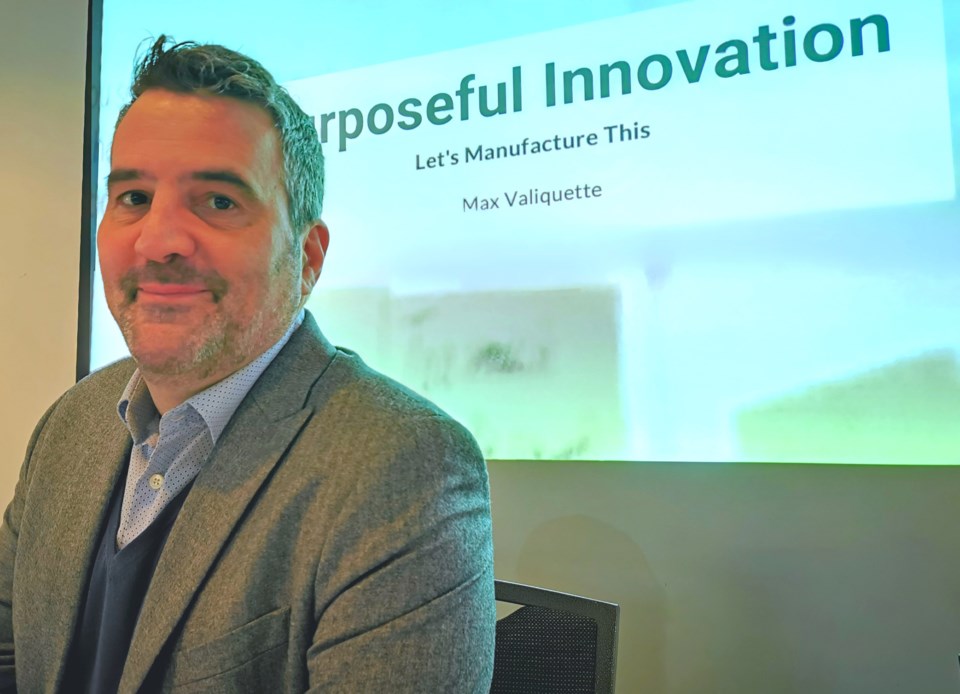Over the past 75 years, innovation has become the single biggest buzz word in the business world.
In fact, according to a keynote presentation delivered to the 2023 Manufacturing Innovation Summit (MIS) at Horseshoe Resort on Tuesday by Max Valiquette, chief strategy officer at Diamond Integrated Marketing, the use of the word "innovation," as a percentage of all words we use in the English language, has grown by 800 per cent since 1945.
“This is a word that we just keep saying more and more often, to the point where Wired magazine called innovation the most important and overused word in America,” Valiquette said early on in his presentation. “We need to start to demystify the word innovation and talk about what it really means.”
Innovation for many businesses is confusing, says Valiquette. They know innovation has never been as valued as it is right now, but many businesses don’t know how to get value from innovation.
They’re not sure, he added, if they’re being innovative or disruptive.
“Innovation, for me,” Valiquette said, “has always been customer-centric — we don’t innovate for the sake of innovation, we innovate because our customers demand it.”
He then listed a number of truly innovative companies that just couldn’t get the customer value-proposition in place — Theranos (blood testing), Moviepass (a movie theatre subscription), JuicEro and Segway, the personal transportation device.
Each of them were great ideas, Valiquette said, but they just didn’t click with consumers, for one reason or another.
In the end, he said, they really didn’t understand what innovation is and how it helps a company move forward.
“Innovation is the process that makes you as valuable tomorrow as you are today,” he said. “None of us work for pure innovation companies. We work for organizations that need innovation as part of their ongoing process to ensure they are successful and relevant tomorrow.”
Valiquette, who has more than 25 years of experience leading innovation and transformation at major brands, says companies don’t make innovation, they manufacture what they manufacture and they provide the services that they provide. They need to be innovative to make sure they can still do that.
“Innovation is not the goal, it’s the process,” he said. “In fact, innovation is the process that makes you even more valuable tomorrow than you are today.”
According to Valiquette, innovation needs a purpose, which is usually rooted in the end benefit a company delivers to its best customers. Innovation is not technology, he added. It’s a mindset, a corporate value made real with purpose, support and processes.
Innovation should become so strong in an organization that it is no longer considered innovative but rather iterative, like Apple, he added.
“On a month-to-month basis, Apple really isn’t that innovative,” he said, quoting a Time magazine article. “Instead, the company is tremendously iterative, which is a fancy way of saying that they’re good at making steady, small improvements over time.”
One of the reasons why Apple succeeds, according to Valiquette, is the way the company approaches innovation across the organization.
“Apple defines innovation as the ability to see changes as an opportunity, not a threat,” he said.
To get to that point, Valiquette said, companies have to pay special attention to workplace psychological safety, perhaps the most critical component of innovation.
“We are humans and we feel fear and fear is the enemy of innovation,” he explained. “You have to create psychological safety and you have to let your people be wrong. Being wrong and having the freedom to be wrong is important. Let them be wrong, but set them up to be right.”



